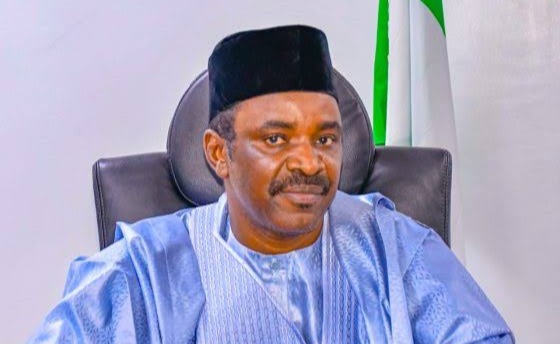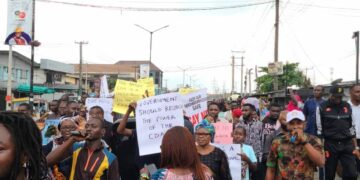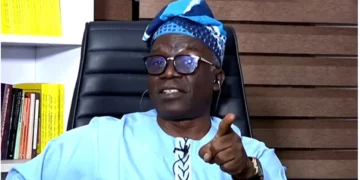Nigeria’s rail transport system could soon become one of the nation’s largest revenue sources, second only to the oil sector, Minister of Transportation, Senator Said Alkali, has stated.
Alkali stated this while speaking during an inspection tour of the ongoing Kano-Daura-Maradi rail project, where he was accompanied by members of the Senate Committee on Land Transportation who were on an oversight visit.
The minister emphasised the growing interest in the rail sector from various state governments, noting investments in Lagos, Plateau, and Kaduna as signs of an expanding national railway network.
Alkali also stressed that, “The unbundling of the rail sector is designed to enable private sector participation.
“The federal government is making significant investments in infrastructure, and once freight operations commence from Lagos to Maradi, in line with the African Continental Free Trade Agreement, it will generate substantial revenue, significantly impacting Nigeria’s GDP.”
He added that plans were underway to connect Port Harcourt and Onne Ports through Aba to Maiduguri in a move he believes would transform the country’s transport infrastructure and make rail transportation revenue rival to oil.
Alkali also revealed that the University of Transportation in Daura would provide specialised training to students and equip them to manage the country’s evolving transportation system.
Additionally, he noted improvements in the construction of the rail line and confirmed that those affected by the project will be compensated.
Meanwhile, Chairman of the Senate Committee on Land Transportation, Senator Adamu Aliero, has commended the progress made on the rail project.
He expressed Senate’s full support for the initiative while emphasising its potential economic benefits, although acknowledging that more work were still required.
Aliero noted that the progress so far has been funded primarily by the Nigerian government with counterpart funding from international partners still pending.
At the University of Transportation in Daura, Aliero praised the efforts to establish the institution but stressed the need for expanded facilities to accommodate more students.
“Currently, the university can only admit 1,300 students out of 5,000 applicants. The federal government must invest in expanding the infrastructure,” he said.
The Kano-Maradi Rail project which began in 2022 under the administration of former President Muhammadu Buhari is projected to cost over $1.9 billion, equivalent to N400 billion.
The federal government is responsible for 15% of the funding, while the partnership company will source 85% of the funds as a loan, repayable over 50 years with completion target of December 2026.
The rail line will connect Kano to Jigawa, extending into Niger to Maradi, with a new branch from Kano to Dutse in Jigawa.
The project which covers about 400 km with 13 stations across three states across Kano, Jigawa, and Katsina aims to integrate rail and road transport, improving both passenger and cargo services in the region.
Once operational, the railway is projected to transport 9,300 passengers and 3,000 tons of freight daily thereby boosting agricultural and manufacturing activities along the route.





